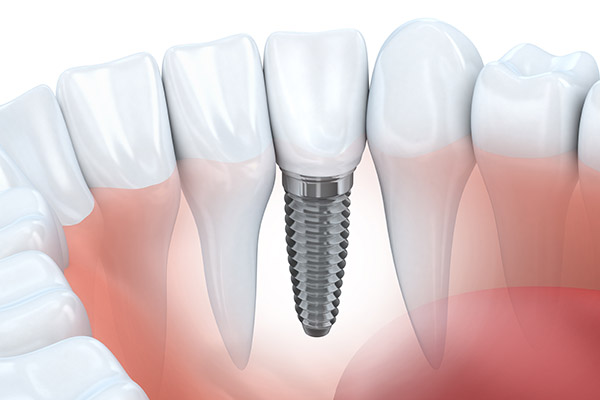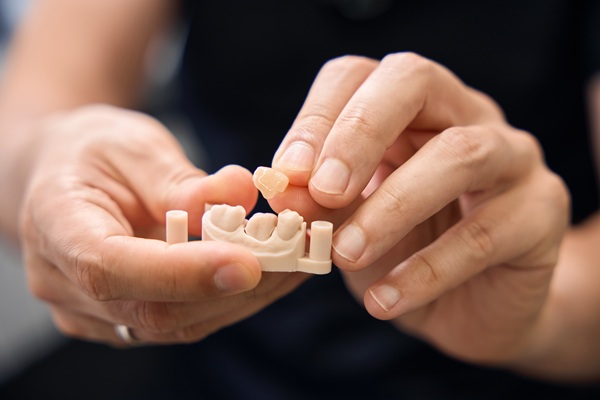 Denture care and maintenance are vital to the health and functionality of both the dentures and your overall oral cavity. Various care tips and maintenance protocols can help you prolong the life of your dentures, depending on whether they are fixed or removable. Nonetheless, patients should treat their dentures as normal teeth and continue visiting their dentist and prosthodontist for routine checkups and cleanings. Read on to learn proper denture care and maintenance measures to upkeep your dentures and oral health.
Denture care and maintenance are vital to the health and functionality of both the dentures and your overall oral cavity. Various care tips and maintenance protocols can help you prolong the life of your dentures, depending on whether they are fixed or removable. Nonetheless, patients should treat their dentures as normal teeth and continue visiting their dentist and prosthodontist for routine checkups and cleanings. Read on to learn proper denture care and maintenance measures to upkeep your dentures and oral health.
Proper denture care
Dentures require special care to keep them clean and in good condition. Additionally, it is vital to continue to practice good oral hygiene, even if one has a full set of dentures. Following these denture care steps from the Mayo Clinic will help keep the mouth as healthy as possible:
- Rinse after eating. It is easy for food to get caught in dentures while eating. Remove the dentures and rinse them after finishing a meal to help ensure bacteria do not build up on the dentures.
- Brush daily. Cleaning dentures is essential and easier to do than some people realize. Like natural teeth, dentures require regular brushing. First, remove the dentures and gently clean them with a soft brush. If the patient uses adhesive, they need to clean out any that remains in the grooves that fit against the gums.
- Clean thoroughly. When removing the dentures to clean them, be sure also to clean the mouth. Use a toothbrush to clean any natural teeth. Also, clean the tongue, cheeks, and palate with either a toothbrush or gauze.
- Soak overnight. Most types of dentures need to stay moist to remain in good condition. Soak them overnight in a mild solution. Patients can find denture-soaking solutions in most convenience stores and pharmacies.
- Rinse before replacing. In the morning, rinse the dentures before placing them in the mouth. This is especially important if patients use a denture-soaking solution. Many solutions are unpleasant or even unsafe to ingest.
Proper maintenance of dentures
Another important aspect of maintaining good oral health and caring for dentures is routine dental and denture checkups. Patients should schedule regular checkups with their dentist and prosthodontist, even with artificial tooth replacements. The appointment may involve checking that the dentures are still fitting correctly, relining, rebasing, or making any necessary adjustments. Additionally, the dentist will help ensure the lasting good health of the rest of the mouth.
Even patients with no remaining natural teeth should continue visiting a dentist for checkups. Loose dentures can cause irritation, sores, and infections and may result in other oral health complications in the long run. Also, avoid DIY or at-home repair kits that will only risk further damaging the dentures.
Diet changes
For the most part, patients can continue to eat food with dentures as they normally would with natural teeth. However, this can be slightly uncomfortable and feel strange at first. Although dentures can withstand a good amount of pressure, we recommend patients eat healthy, nutritious food and avoid processed or fast food rich in protein, carbohydrates, and healthy fats. This will help prolong the health of the dentures as well as overall oral and general health.
Seek professional care
Denture care and maintenance are essential to upkeep healthy, clean, functional dentures and long-term oral health. Another important factor in maintaining your dentures is professional maintenance and repairs when necessary. Call us today at 404-891-9489 to learn more or schedule an appointment.
Request an appointment or call Pampered Smiles at 404-891-9489 for an appointment in our Atlanta office.
Recent Posts
Those missing one or more teeth with healthy natural teeth can benefit from partial dentures. Not only do partial dentures help people chew food correctly, but they also restore the appearance of a smile. Choosing partial dentures allows a patient to regain comfort and confidence without complicated procedures.Partial dentures are removable oral appliances that fill…
Dentures are a great solution for people who have lost some or all of their teeth. They can restore one's ability to eat and speak properly and improve the overall appearance of your smile. However, you may have questions about the denture process, from the initial consultation to the final fitting. This blog article will…
Implant-supported dentures are ideal for many dental professionals and their patients. They offer many benefits over their alternatives, including a natural look and results lasting around 15 years or more. If you are considering restoring your smile with implant-supported dentures, we have outlined a few things to know before your appointment.Implant-supported dentures are not ideal…


